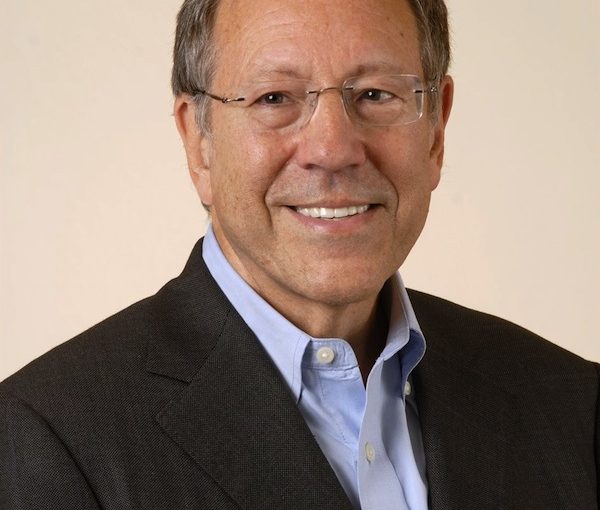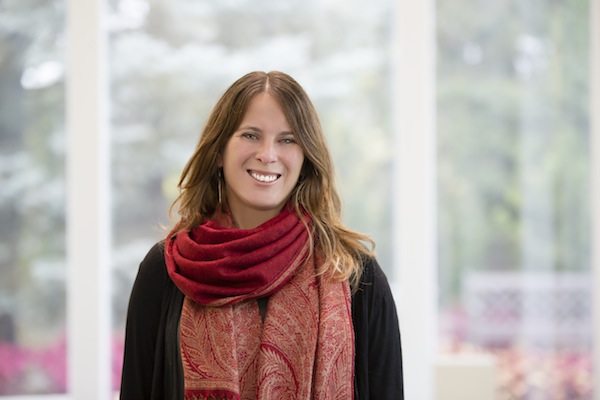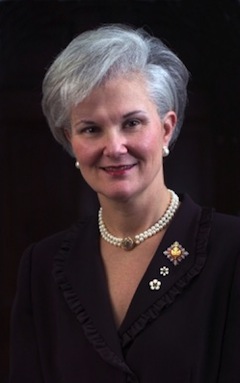Dan Levitt has been appointed to be British Columbia’s new seniors advocate (photo from Dan Levitt)
Dan Levitt is set to become British Columbia’s new seniors advocate. The appointment was announced last month by BC Health Minister Adrian Dix.
“Dan Levitt has championed the rights of seniors for 30 years and with his extensive experience he is an excellent choice for BC’s seniors advocate,” Dix said in announcing the appointment. The Office of the Seniors Advocate is an independent branch of the provincial government, which acts in the interest of seniors and their caregivers.
Levitt becomes only the second person to hold the role, replacing Isobel Mackenzie, who will retire April 5 from the position she initiated a decade ago.
Levitt spoke with the Independent over lunch in the community centre that is part of KinVillage, the Tsawwassen continuing care retirement community he has headed as chief executive officer since 2021. Over the din of an adjacent bingo game, Levitt spoke of his career, the footsteps of his father and his plans for the new job.
The role of seniors advocate is unusual, he explained. British Columbia’s was the first in Canada, being created by legislation in 2013. To date, only two provinces, New Brunswick and Newfoundland and Labrador, have followed suit, though others are considering it.
The purpose of the advocate’s office, which has a staff of 17, is to look at systemic issues that impact seniors and make recommendations to government.
“The five areas that we look at are transportation, housing, health care, income supports and community services that are geared around older people,” said Levitt. While the office has no authority to force governments to take steps, Levitt said his predecessor, Mackenzie, has recommended many proposals that have found favour with those in power. Not all recommendations will be adopted, he said, but “it usually helps to move the needle in a direction.”
“There isn’t that power, if you will, to say, ‘This must happen.’ But, many times, the recommendations are ones that are introduced and taken forward because they are the right things to do,” said Levitt, noting that his predecessor initiated a great range of measures that the government has taken up.
“Isobel and the office have been real pioneers in shedding lights on challenges and opportunities with an aging population,” he said. “That’s the purpose of these independent offices. They can reflect, in this case, what matters most to seniors, what are their concerns, and then move that agenda forward in helping to influence public policy.”
The position is nonpartisan and independent from government.
“In the recruitment process, no political official was involved,” said Levitt.
Levitt is not the first in his family to work in the senior care field. His father, Ken Levitt, was a longtime administrator of the Louis Brier Home and Hospital, during a time of significant expansion, including the development of the Weinberg Residence. The elder Levitt is now, among other things, past president of the Jewish Seniors Alliance of Greater Vancouver.
“I am following in his footsteps, for sure,” said the son. “And I think I am honouring, as he did, our parents by ensuring the health and well-being of older adults.”
As his new position requires he hold no outside affiliations, Levitt recently resigned from roles on the boards of directors of CommonAge, which advances the interests of older adults in the 53 Commonwealth countries, and the International Federation on Ageing. He has also given up adjunct professorships in gerontology at Simon Fraser University and in the school of nursing at the University of British Columbia, and a sessional instructor position at the British Columbia Institute of Technology.
Levitt’s undergrad degree in psychology is from UBC and he graduated from the University of North Texas, Centre for Studies in Aging, with a master of science.
“I need to dedicate 110% of my working time to this role,” he said of giving up his other gigs, which included speaking engagements worldwide on topics of aging and extensive public commentary on related subjects.
The vetting process for the seniors advocate position was a lengthy one – and Levitt compares getting the final word on his selection with the feeling of elation he gets when he places well in his avocation of competitive running.
“Probably like anybody else who’s been through a job search like this, when you get that nod, it feels pretty good,” he said. “I am a competitive runner in my age category and, when I place well in a race, you are elated. So, when I got the message, I was pinching myself, making sure I heard what I thought I heard. You feel this elation. Soon this wears off and you start realizing the responsibility, start realizing what this means now, and people are depending on you to make their lives better.”
Caring for seniors also means helping the people in their lives, he said.
“It’s not just the older people that we’re trying to support, who are directly impacted, but it’s their family members,” said Levitt.
Although he is not yet in the job – he’ll have to move to Victoria, coming home to Vancouver on weekends – he already has the first few months scoped out.
“I’m going to be doing a tour around the province of BC [meeting with seniors],” he said. “I’ll be asking them questions around what are those policies that help or hinder them in those five areas of transportation, housing, health care, income supports and community supports. We’ll be looking at those issues, listening to them, then we’ll come back to the office, synthesize the information and then we will release a report on what we found. That report will give us a mandate of what the biggest concerns are that seniors have and we’ll make recommendations to the government on how we can improve different aspects of seniors’ lives.”
In the statement announcing Levitt’s appointment, his predecessor had kind words for him.
“It has been an honour and a privilege to serve as seniors advocate for the Province of BC,” said Mackenzie. “Our population is aging and seniors need the ability to live independently at home, knowing the programs and services to support them are easily accessible to everyone. As issues such as dementia, housing and elder care become more complex, it’s crucial to advocate for strengthened seniors services throughout the province. I know Dan is ready to continue the cause and his efforts will make a difference in the lives of seniors for years to come.”
“I have big shoes to fill,” said Levitt, “because Isobel Mackenzie has done a phenomenal job starting the Office of the Seniors Advocate and really setting a very high bar, really pushing forward the agenda of older people, shining a light on some of the inequities and some of the systemic issues that impact older people and making recommendations that have stuck and changed just about every aspect of life for seniors.”
Levitt has spoken out on issues in the past, weighing in, for example, on the controversy around Lisa LaFlamme, whose firing as CTV National News anchor was blamed on sexism and ageism, and in challenging the ageism of birthday cards. While he will be taking on systemic issues on the larger stage of provincial policy, he urges individuals to speak up against ageism in everyday life and to celebrate aging.
Be aware of even subtle language that debases older people and their experiences, he advises.
“Don’t use the language that demonizes or goes into the negative stereotypes we often will see,” he said. “For example, ‘I’m having a senior moment.’ No one who is young says they’re having a junior moment.”
He encourages everyone to reject negative connotations around aging.
“Embrace your own age,” he said. “Embrace who you are and enjoy those birthdays and celebrate them and celebrate getting older. Don’t hide your age.”











